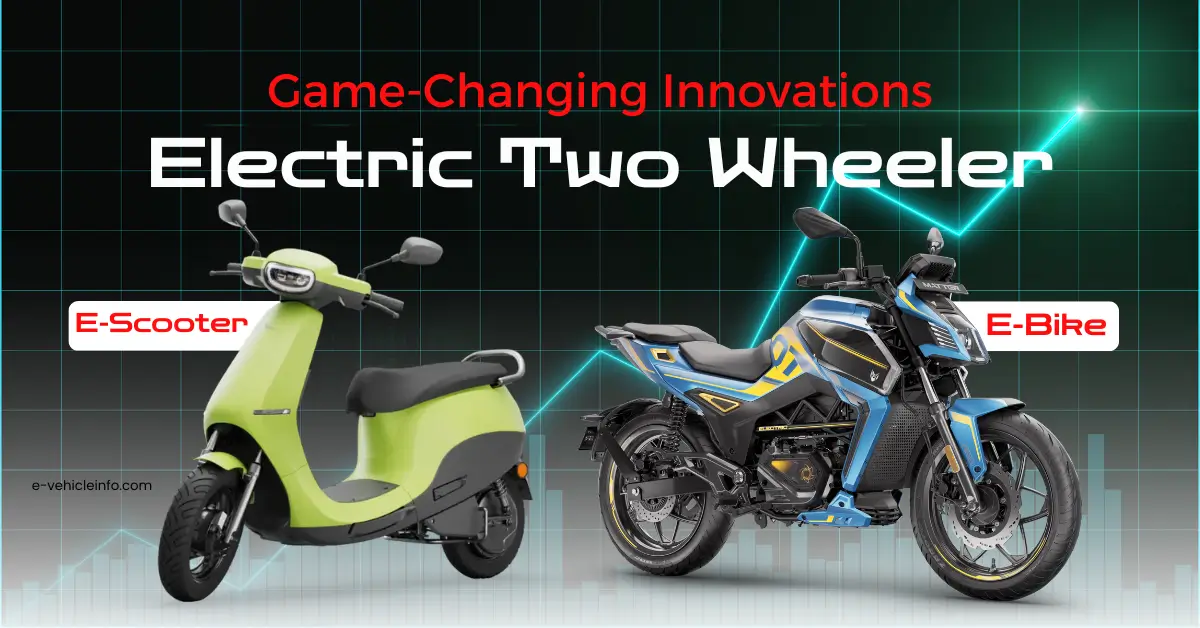
The sales of these vehicles had already surpassed the 10-lac mark by November 10, 2024, marking a significant milestone.
The year has also been a witness to a flurry of technological advancements, which have gone a long way in making these vehicles smarter, safer, and sturdier.
This progress reinforces our confidence in the government’s vision of achieving 30% EV penetration by 2030.
Now, as the year changes its number, the industry is prepared to take even greater strides, committed to continuing this journey with even greater vigor.
Manufacturers and technology enthusiasts are constantly pushing the boundaries of innovation, paving the way for a new chapter in the growth story of electric two-wheelers.
As we say this, it is certain that several striking trends are expected to take center stage over the next few months, that are set to change the face of the electric two-wheeler industry.
Exciting developments in battery technology are on the horizon, which promises to enhance the performance of electric two-wheelers in multiple ways.
Specifically, the use of advanced solid-state batteries is expected to emerge as a key trend in the industry. These innovative batteries offer significantly higher energy density compared to traditional lithium-ion batteries, meaning they can store more energy in a smaller place.
This results in increased range per charge, allowing riders to go further on a single charge. Additionally, these batteries are known for their superior safety features and extended lifespan, making them a reliable choice for electric two-wheeler manufacturers.
As more manufacturers embrace this technology in the forthcoming year, we can expect to see a significant shift towards sustainable transportation solutions in India.
Further, as we look ahead to 2025, the use of Artificial Intelligence (AI) in electric two-wheelers is set to skyrocket, making these vehicles more intelligent and autonomous.
AI-powered features such as adaptive cruise control, lane departure warning, and self-parking are expected to become standard features in electric two-wheelers.
Moreover, manufacturers are expected to take a deep dive into this revolutionary technology to create increasingly personalized riding experiences for riders.
AI-powered systems would allow electric two-wheelers to analyze rider behavior, preferences, and road conditions in real time to provide customized riding experiences.
For instance, these systems can adjust the suspension, throttle response, and braking system according to the rider’s style and comfort level.
They can also adjust various settings such as seat height, suspension stiffness, and handlebar position to provide a tailor-made riding experience for each rider.
Thus, personalized riding experiences are set to become the norm in Indian electric two-wheelers by 2025, transforming the way riders interact with their vehicles.
However, to achieve this, manufacturers will need to implement robust data security measures to safeguard the personal information of riders.
Thanks to various advancements in IoT, modern electric two-wheelers now come equipped with smart connectivity features that enable riders to receive important notifications, track their vehicle’s performance, and even plan their routes more efficiently. Manufacturers are expected to continue their focus in this area and enhance the IoT capabilities of these vehicles in 2025.
An increasing number of these vehicles are expected to be equipped with seamless connectivity features such as real-time navigation, remote diagnostics, and vehicle-to-vehicle communication.
Advanced safety features such as ABS, traction control, and collision avoidance systems becoming standard in electric two-wheelers, making them safer than ever before.
The evolution of this technology in the coming year will open doors to numerous opportunities, paving the way for a smarter and more interconnected future.
A significant increase in the availability and efficiency of rapid charging solutions for electric two-wheelers is also anticipated in the coming year. Manufacturers are investing heavily in research and development to create faster and more reliable charging technologies that will revolutionize the way people power up their vehicles.
Apart from this, emphasis is being laid on improving the aesthetics of electric two-wheelers through cutting-edge design and material innovation.
Thus, the market in 2025 is projected to feature a range of innovative electric two-wheelers that seamlessly combine stylish design with superior performance and safety.
Thus series of new developments are likely to breathe a wave of fresh air in the industry, hopefully aiming to meet the evolving expectations of the Indian population, especially the Gen Z.
This in turn will have a profound impact on the market dynamics, raising the bar of attractiveness for electric two-wheelers.
The government’s continued and enhanced support can prove to be an icing on the cake by further accelerating their adoption. The industry is brimming with hope and anticipation, as the new year seems to hold a bigger, brighter promise for electric two-wheelers.
This post was last modified on December 24, 2024 11:40 am
In a major stride toward sustainable mobility, the Himachal Pradesh Police have incorporated six custom-modified Tata Curvv electric vehicles into…
In India, the automotive and transport industry is undergoing significant changes. This transformation isn't just about improving roads and infrastructure;…
Montra Electric, the clean mobility brand from the prestigious Murugappa Group, has launched the All-New Super Auto, a next-generation electric…
Union Minister Nitin Gadkari (Minister of Road Transport and Highways of India) has once again made a bold statement that’s got…
India’s electric four-wheeler (E4W) market slowed in September 2025, following a record-breaking August, with 15,038 units sold, representing an 18%…
India’s EV market hit 1,04,056 electric two-wheeler sales in September 2025. TVS, Bajaj, and Ather led the chart, while Ola…
This website uses cookies.